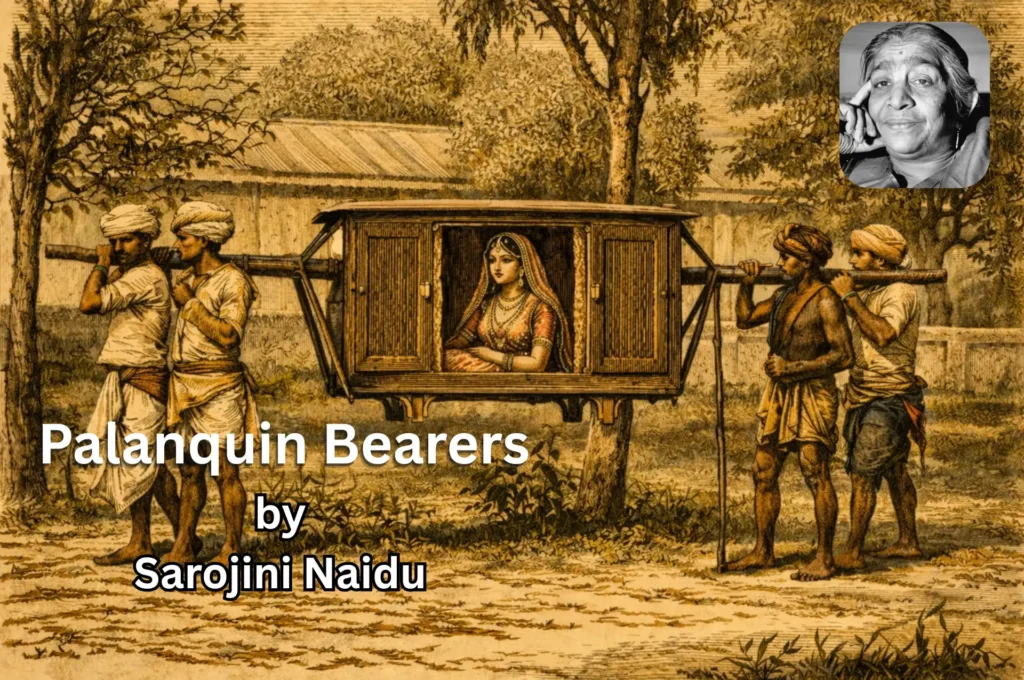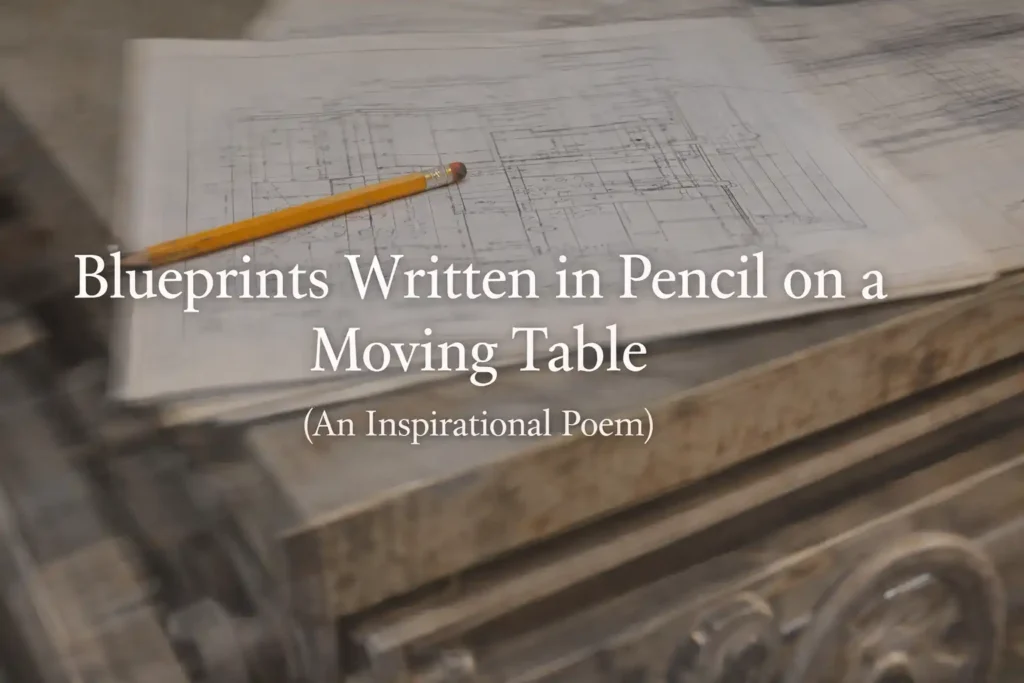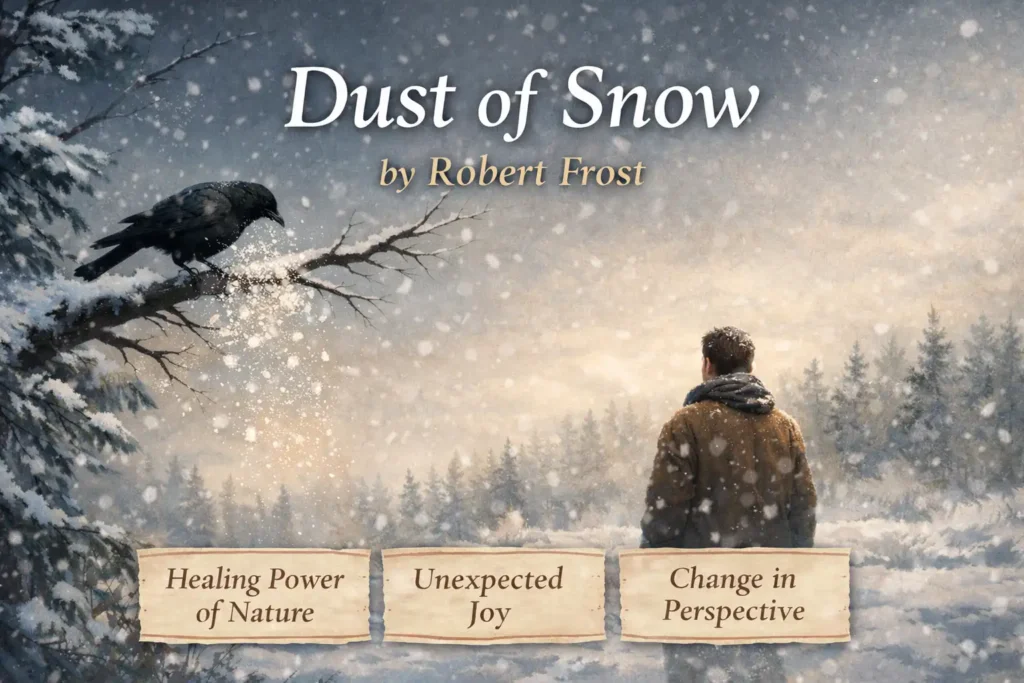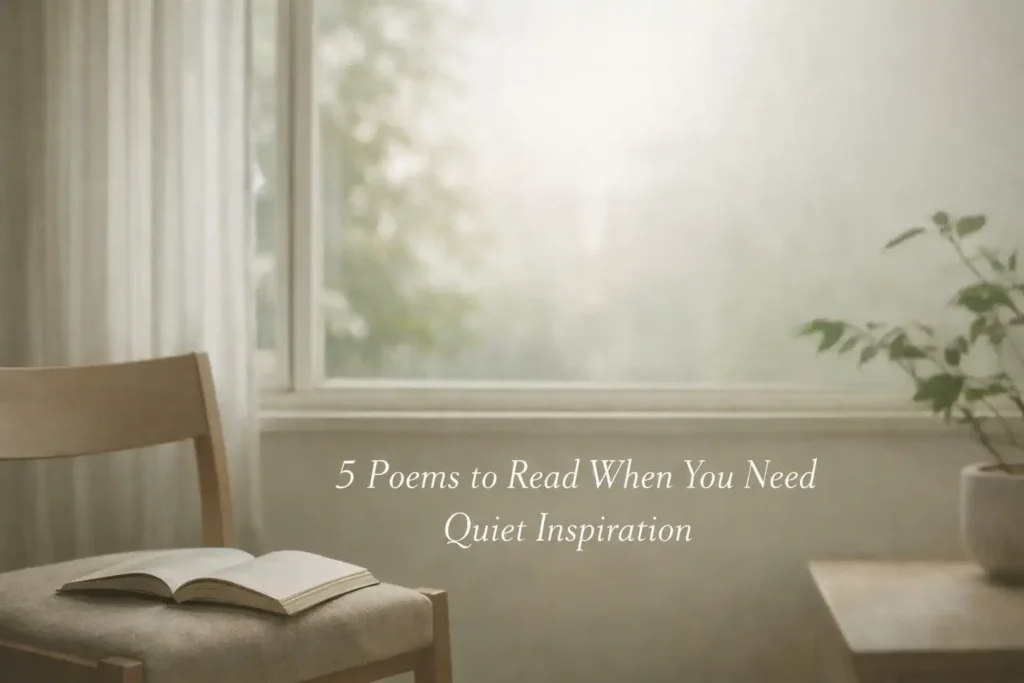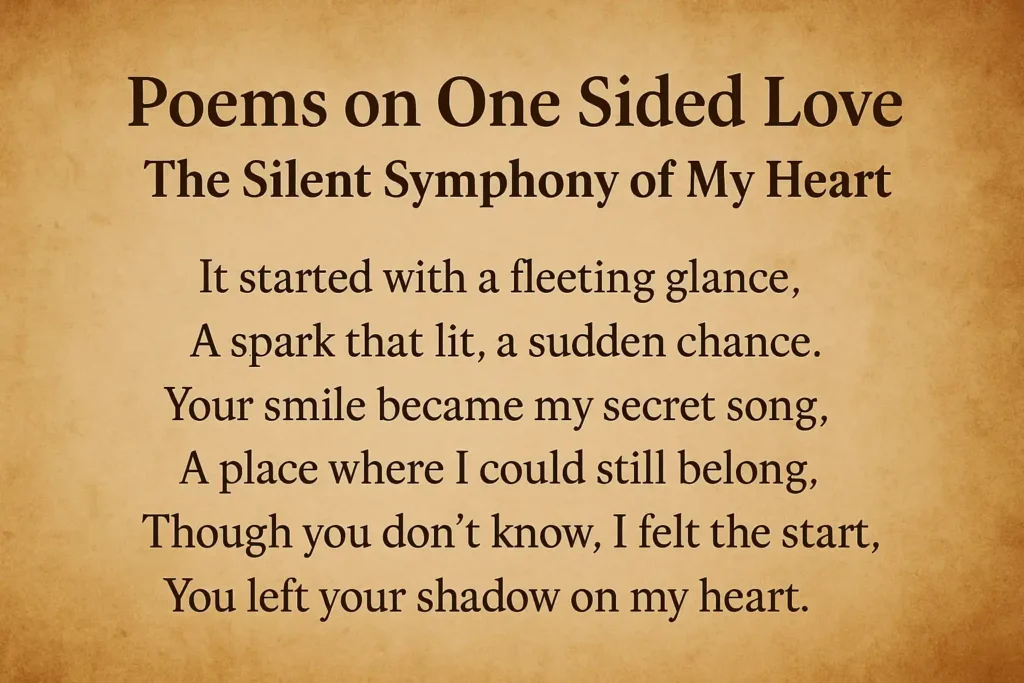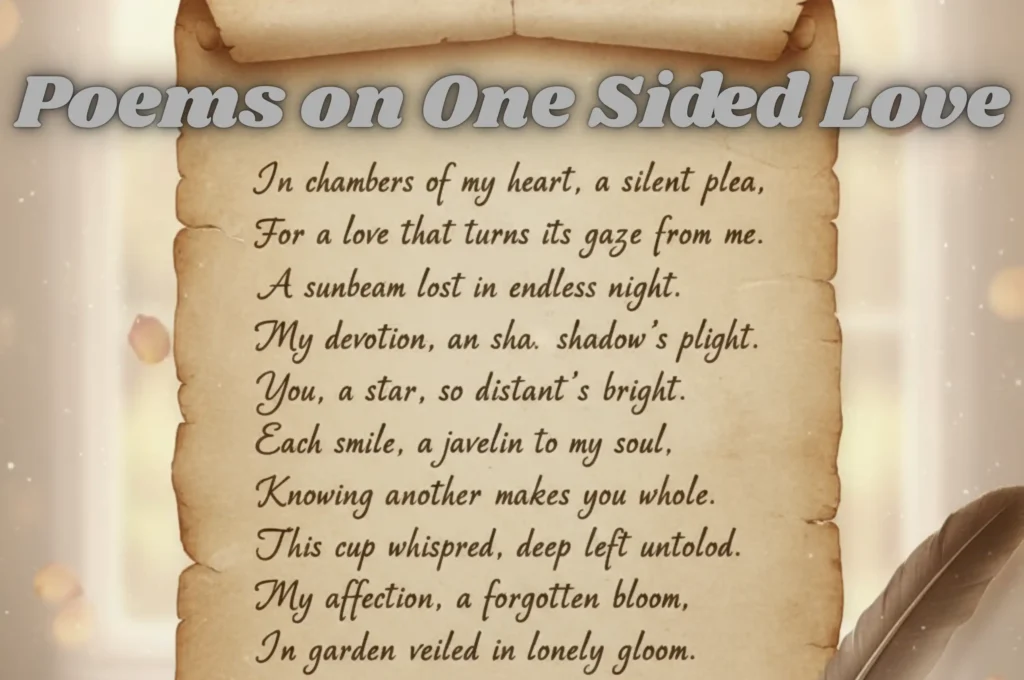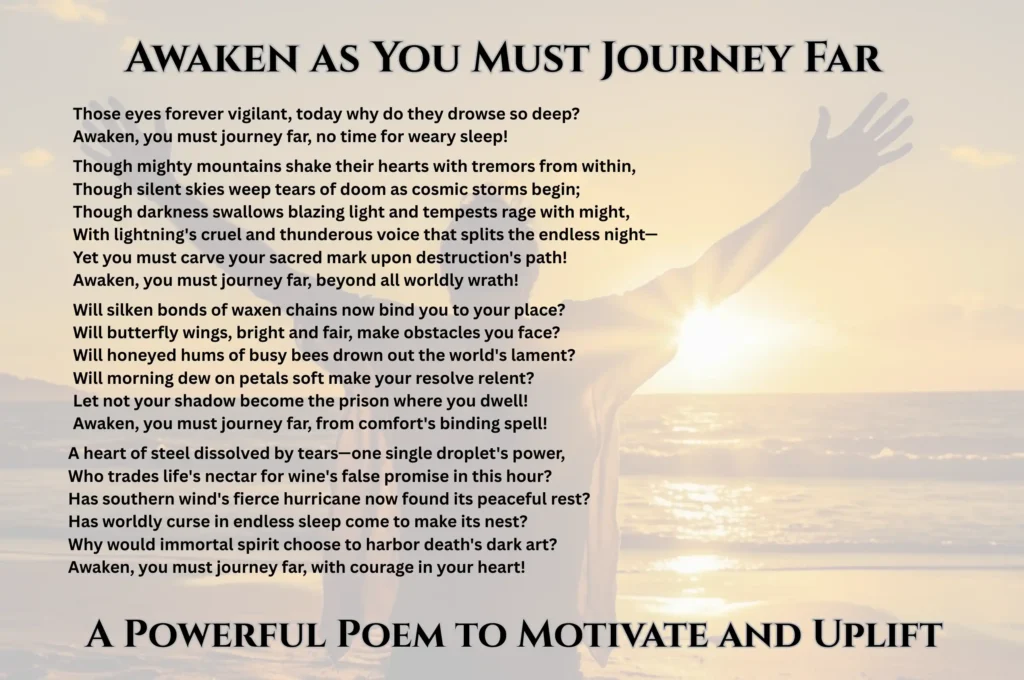William Wordsworth’s poem Lines Left Upon a Seat in a Yew-tree, composed in 1795 and published in 1798, is a reflective and melancholic piece that captures the themes of solitude, nature, and the fleeting nature of human existence. Written during his youth, the poem is set near the lake of Esthwaite, where a solitary yew tree once stood, offering a beautiful yet desolate view of the landscape.
The poem tells the story of a man who, despite his education and intellect, chooses a life of isolation, only to be consumed by regret and sorrow. Wordsworth draws upon his own experiences and the changing landscapes of the Lake District to evoke a sense of nostalgia and loss. Through this work, he explores the contrast between the beauty of nature and the emotional struggles of the human soul, a theme that would become central to his poetic philosophy.
Once categorized among Wordsworth’s Poems of Sentiment and Reflection and later placed among Poems Written in Youth, Lines Left Upon a Seat in a Yew-tree remains a profound meditation on the consequences of solitude and the importance of connection to both nature and society.
Also Read: Poets and Poetry Page | Biography of William Wordsworth | Poems by William Wordsworth | Famous Quotes by William Wordsworth
Lines Left Upon A Seat In A Yew-Tree Poem
Which stands near the lake of Esthwaite, on a desolate part of the shore, commanding a beautiful prospect.

Lines Left Upon A Seat In A Yew-Tree by William Wordsworth
LINES LEFT UPON A SEAT IN A YEW-TREE WHICH STANDS NEAR THE LAKE OF ESTHWAITE, ON A DESOLATE PART OF THE SHORE, YET COMMANDING A BEAUTIFUL PROSPECT.
Lines Left Upon a Seat in a Yew-Tree Poem
—Nay, Traveller! rest. This lonely yew-tree stands
~William Wordswroth
Far from all human dwelling: what if here
No sparkling rivulet spread the verdant herb;
What if these barren boughs the bee not loves;
Yet, if the wind breathe soft, the curling waves,
That break against the shore, shall lull thy mind
By one soft impulse saved from vacancy.
—Who he was
That piled these stones, and with the mossy sod
First covered o’er, and taught this aged tree,
Now wild, to bend its arms in circling shade,
I well remember.—He was one who own’d
No common soul. In youth, by genius nurs’d,
And big with lofty views, he to the world
Went forth, pure in his heart, against the taint
Of dissolute tongues, ’gainst jealousy, and hate,
And scorn, against all enemies prepared,
All but neglect: and so, his spirit damped
At once, with rash disdain he turned away,
And with the food of pride sustained his soul
In solitude.—Stranger! these gloomy boughs
Had charms for him; and here he loved to sit,
His only visitants a straggling sheep,
The stone-chat, or the glancing sand-piper;
And on these barren rocks, with juniper,
And heath, and thistle, thinly sprinkled o’er,
Fixing his downward eye, he many an hour
A morbid pleasure nourished, tracing here
An emblem of his own unfruitful life:
And lifting up his head, he then would gaze
On the more distant scene; how lovely ’tis
Thou seest, and he would gaze till it became
Far lovelier, and his heart could not sustain
The beauty still more beauteous. Nor, that time,
Would he forget those beings, to whose minds,
Warm from the labours of benevolence,
The world, and man himself, appeared a scene
Of kindred loveliness: then he would sigh
With mournful joy, to think that others felt
What he must never feel: and so, lost man!
On visionary views would fancy feed,
Till his eye streamed with tears. In this deep vale
He died, this seat his only monument.
If thou be one whose heart the holy forms
Of young imagination have kept pure,
Stranger! henceforth be warned; and know, that pride,
Howe’er disguised in its own majesty,
Is littleness; that he, who feels contempt
For any living thing, hath faculties
Which he has never used; that thought with him
Is in its infancy. The man, whose eye
Is ever on himself, doth look on one,
The least of nature’s works, one who might move
The wise man to that scorn which wisdom holds
Unlawful, ever. O, be wiser thou!
Instructed that true knowledge leads to love,
True dignity abides with him alone
Who, in the silent hour of inward thought,
Can still suspect, and still revere himself,
In lowliness of heart.
Facts About “Lines Left Upon a Seat in a Yew-tree” by William Wordsworth
- Composed During Wordsworth’s School Years – The poem was partly written while Wordsworth was a student at Hawkshead, a period that deeply influenced his love for nature and poetic sensibilities.
- The Yew Tree No Longer Exists – The tree that inspired the poem has since disappeared, and the slip of Common on which it stood, once open to the lake, has been enclosed, changing the landscape significantly.
- A Favorite Spot for Reflection – The location of the yew tree was one of Wordsworth’s favorite evening walks during his later school years, offering a place for solitude and inspiration.
- Based on a Real Individual – The poem’s central figure is inspired by a real gentleman from the neighborhood—an educated man who chose to live in seclusion on his estate but ultimately suffered from isolation and regret.
- Connection to the Lake District – The gentleman built a small summer house on the rocks above the peninsula where the Ferry House now stands, a site that later came under the ownership of Mr. Curwen.
- Now Known as “The Station” – The scenic spot where the yew tree once stood was described in Mr. West’s Guide as “the pride of the Lakes” and is now referred to as The Station.
- A Childhood Memory – Before the summer house was built, Wordsworth, as a young boy, brought an Irish servant boy (working for an itinerant conjurer) to witness the beauty of the landscape, a memory he cherished and deemed worth recording.
These facts provide insight into the personal and historical background of Lines Left Upon a Seat in a Yew-tree, highlighting Wordsworth’s deep connection to nature, solitude, and the landscapes of the Lake District.
Summary of Lines Left Upon a Seat in a Yew-tree
William Wordsworth’s Lines Left Upon a Seat in a Yew-tree is a reflective and melancholic poem that explores themes of solitude, regret, and the passage of time. The poem tells the story of a man who, despite being educated and of noble character, chooses a life of isolation in nature. He builds a retreat near the lake of Esthwaite, seeking solace in the beauty of the landscape. However, rather than finding peace, he is consumed by loneliness and sorrow.
Through vivid imagery and philosophical reflection, Wordsworth portrays the contrast between the external beauty of the natural world and the internal suffering of the man. The poem serves as a cautionary tale about the dangers of detaching oneself from society and seeking fulfillment in solitude alone. The seat beneath the yew tree, where the man once sat, becomes a silent witness to his wasted years and ultimate fate.
Analysis of Lines Left Upon a Seat in a Yew-tree
- Theme of Solitude and Isolation
The poem delves into the consequences of choosing solitude over human connection. While the man initially retreats into nature for comfort, his isolation eventually leads to despair. Wordsworth warns that a life disconnected from others can result in regret rather than enlightenment. - Nature as Both Comfort and Warning
As in many of Wordsworth’s poems, nature plays a central role, serving as both a source of beauty and a silent observer of human suffering. The serene landscape contrasts with the man’s internal turmoil, emphasizing the idea that nature alone cannot provide complete fulfillment. - Moral Reflection on Human Life
The poem carries a moral lesson about the importance of balancing contemplation with engagement in life. Wordsworth suggests that while nature can offer peace, one must also cultivate relationships and participate in society to achieve true contentment. - Use of Imagery and Symbolism
- The yew tree symbolizes endurance, death, and memory. Its presence signifies the passage of time and the remnants of a life lived in sorrow.
- The seat under the tree represents the lingering impact of the man’s choices, a physical reminder of his solitude and the consequences of withdrawing from the world.
- Romantic Ideals and Reflection on the Past
Wordsworth’s Romanticism is evident in the poem’s deep connection to nature and the introspective tone. His personal experiences at Hawkshead and love for the Lake District shape the poem’s nostalgic and reflective mood.
Conclusion
Lines Left Upon a Seat in a Yew-tree is a poignant meditation on the relationship between solitude, nature, and human happiness. Wordsworth’s depiction of a life lost to isolation serves as a cautionary tale, reminding readers that while nature can provide solace, true fulfillment comes from meaningful connections and engagement with the world.
Explore our Literature YouTube Channels:

YouTube Channel Link:

YouTube Channel Link:

YouTube Channel Link:

YouTube Channel Link



